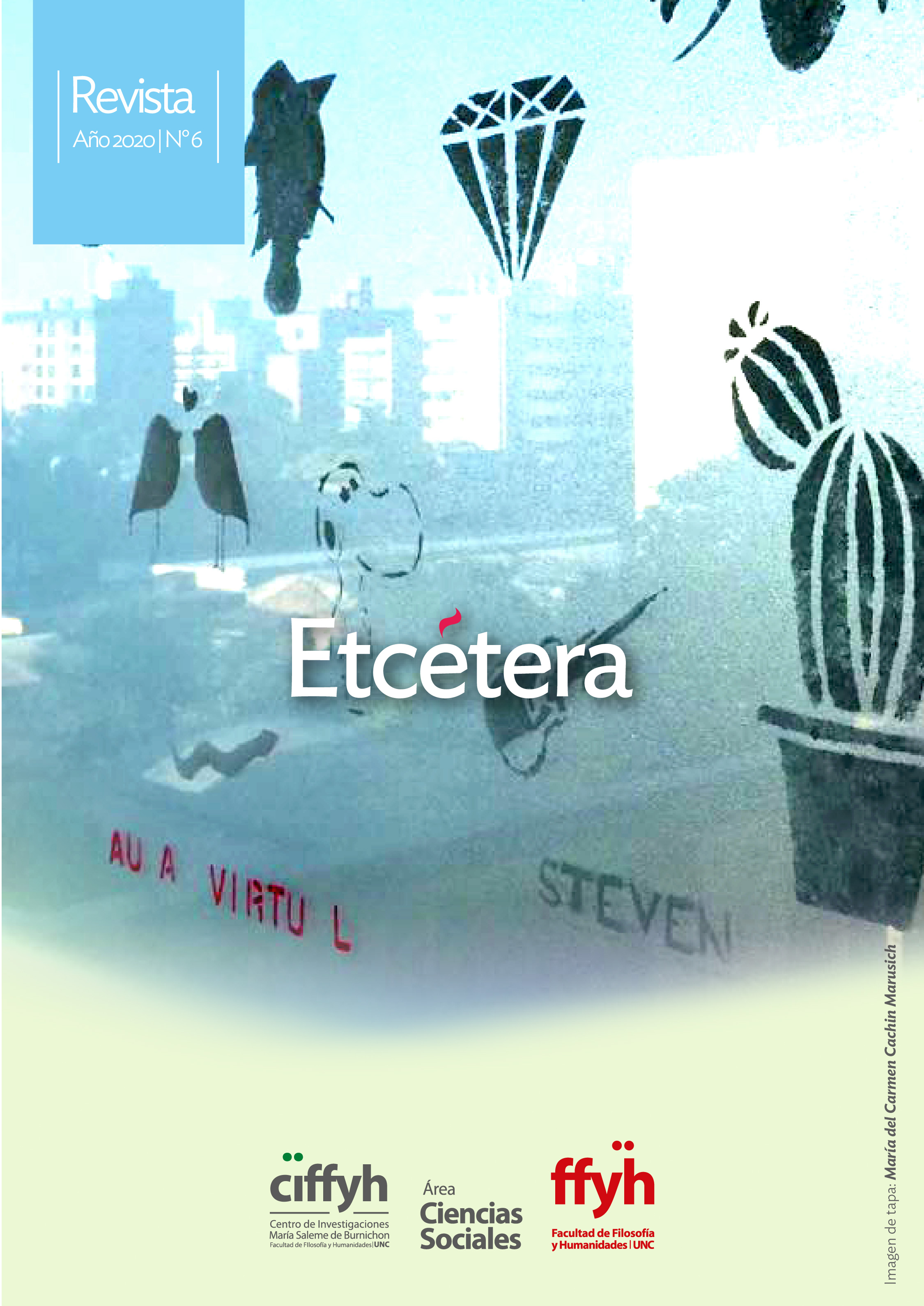Who are you? Between Judith Butler and Edward Said
Keywords:
Recognition frames, Orientalism, CultureAbstract
The following article is framed within the study of my doctoral thesis, in the Doctorate of Philosophy, on the recent formulation of Judith Butler around an ethics of cohabitation. One of the moments of this research is the discussion around the cultural norms that delimit the field of the human. I am referring to the “recognition frames” (Butler, 2010) that operate as a cut of the real, from which the category of human is differentially distributed. Although we are all vulnerable and need institutions and others to survive, not all of us are vulnerable in the same way. There are those who are not considered worthy lives and their life and death happen without globally awakening moral outrage at the violence they suffer. Considering current human cartography, the article sets out to investigate the logic of opposition between the West and the Middle East, where Arab-Muslim lives are considered less than human and therefore not meritorious. In this task, I propose a possible dialogue between the philosopher Edward Said and Judith Butler, recovering from the first his concept of “orientalism” (Said, 2008), important to the analysis of the cultural frames that delimit the border of the human.
Downloads
References
Bush, G. (2001). Discurso en el capitolio. Disponible en: http://www.filosofia.org/his/20010921.htm.
Butler, J. (2017). Cuerpos en alianza y lucha política. Buenos Aires: Paidós.
----------- (2010). Marcos de guerra. Las vidas lloradas. Buenos Aires: Paidós.
----------- (2009). Dar cuenta de sí mismo. Violencia ética y responsabilidad. Buenos Aires: Amorrotu.
----------- (2006). Vida Precaria. El poder del duelo y la violencia. Buenos Aires: Paidós.
Butler, J. y Athanasiou, A. (2014). Desposesión: lo performativo en lo político. Buenos Aires: Eterna Cadencia.
Canseco, A. B. (2017). Eroticidades precarias: la ontología corporal de Judith Butler. Córdoba: Asentamiento Fernseh.
Derrida, J. (2005). La verdad en pintura. Buenos Aires: Paidós.
Mohanty, C. (2008). Bajo los ojos de occidente. Academia feminista y discurso colonial. En: L. Suárez Navaz y A. Hernández Castillo (eds.), Descolonizando el Feminismo: Teorías y Prácticas desde los Márgenes. Madrid: Cátedra.
Said, E. (2008). Orientalismo. Barcelona: Debolsillo.
Spivak, G. (1998). ¿Puede hablar el sujeto subalterno? En: Orbis Tertius, N. 6. En línea: http://www.memoria.fahce.unlp.edu.ar/art_revistas/pr.2732/pr.2732.pdf.
Downloads
Published
Issue
Section
License
Copyright (c) 2020 Etcétera. Revista del Área de Ciencias Sociales del CIFFyH

This work is licensed under a Creative Commons Attribution-NonCommercial-ShareAlike 4.0 International License.
Aquellos autores/as que tengan publicaciones con esta revista, aceptan los términos siguientes:
- Los autores/as conservarán sus derechos de autor y garantizarán a la revista el derecho de primera publicación de su obra, el cuál estará simultáneamente sujeto a la Licencia de reconocimiento de Creative Commons que permite compartir, copiar, distribuir, ejecutar y comunicar públicamente la obra, siempre que: 1) se cite la autoría y la fuente original de su publicación (revista, editorial y URL de la obra); 2) no se use para fines comerciales; 3) En caso que se transforme o genere una obra derivada a partir de esta obra, deberá compartise bajo las mismas condiciones establecidas por esta licencia.
- Los autores/as podrán adoptar otros acuerdos de licencia no exclusiva de distribución de la versión de la obra publicada (p. ej.: depositarla en un archivo telemático institucional o publicarla en un volumen monográfico) siempre que se indique la publicación inicial en esta revista.
- Se permite y recomienda a los autores/as difundir su obra a través de Internet (p. ej.: en archivos telemáticos institucionales o en su página web) luego de la publicacion del articulo, lo cual puede producir intercambios interesantes y aumentar las citas de la obra publicada. (Véase El efecto del acceso abierto).
- El titular del copyright es Etcétera. Revista del Área de Ciencias Sociales del CIFFyH.



















